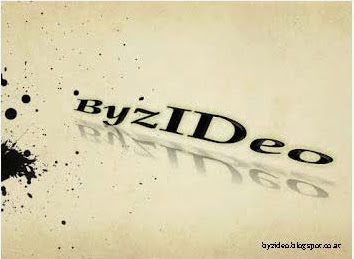IDEOLOGIES & IDENTITIES
IN THE MEDIEVAL BYZANTINE WORLD
IN THE MEDIEVAL BYZANTINE WORLD
Seminar Rooms of the Austrian Academy of Sciences –
Wohllebengasse 12-14, 1040
Summary
In our research project, the
term ideology has a central role. This is a most debated concept that in
historical studies is often used either in a pejorative fashion, i.e. ideology
as rigid worldview or manipulative propaganda, or in an analytically rather
toothless fashion, i.e. as a homogenizing discourse with no relation to social
stratification, interest differentiation and power relations.
Our goal, here, is to redirect
attention to the rehabilitated notion of ideology in historical sociology as a
concept with an important, albeit not necessarily predominant, role in the
cohesion of social orders. In this regard, our focus is not so much on the
question of falsehood or truth of ideological discourses within the Byzantine
social totality, but rather on the scrutiny of the content and the social function
of different sets of ideas and beliefs that people employed to explain and
justify various means and ends of organized social action, political and other.
Our main interest is to explore what made certain discourses ideological as
opposed to others, i.e. allotted to them a central function in the promotion of
power relations and interests on the macro-level of society as well as on the
micro-level of certain social groups. We would also like to focus on a
comparative analysis of the content of oppositional discourses and their actual
or potential role in promoting or threatening the cohesion of certain groups or
even of the society as a whole.
In this respect, we believe
that the correlation of the concept of ideology with the – currently in the
Humanities omnipresent and probably also overused – concept of identity can be
proven particularly fruitful from an analytical point of view. Ethnic,
political, religious and class identities as constructions of the social
environment, and not given in nature or essentially maintained in time and
space, are actually linked to notions of ideology as a cultural or political symbolic universe.
A person’s self-identification with a culturally demarcated and/or politically
organized broader collectivity or with smaller groups that form a part of such
a broader collectivity refers to the ways in which hierarchical or horizontal
views of belonging are created and through which cohesion or contradiction in
social orders can emerge. Political, ethnic, religious social, and geographical
(local-regional) identities need therefore to be scrutinized as potential
factors in delineating ‘subaltern’ groups, that is, those dominated by
political, cultural and socio-economic élites and rendered as powerless actors
within society.
Within this framework, the workshop will focus on the following general thematic categories:
- Dominant ideologies, their content and function (immanent/transcendent,
homogeneity/fractionalism)
- Oppositional or marginal ideologies, content and function (power or
‘subaltern’ groups)
- Subalternity of groups and persons within the imperial social order
(who/why)
- Identity as ideology (Roman hegemonic discourse,
active/passive/reluctant consent, hidden/open opposition)
- Identity (local-regional, religious, class, ethno-cultural) vs.
ideology (political)
- Ideologies and identities of author and text
- Art and text as potential means of transmission of ideology
__________________________________________________________
THURSDAY 16
Registration - Coffee 9.30-10.00
10.00–11.00
Introductory Session:
Welcoming Adresses
Welcoming Adresses
Johannes Koder
Perceptions of imperial war and peace policies among the Byzantine social strata: Introductory remarks
Yannis Stouraitis
Byzantium between ideology and identity: Instead of an introduction
Coffee Break 11.00-11.30
11.30-13.00
Session 1: Ideological frameworks of imperial power
(Chair: Claudia Rapp)
Olof Heilo
Disruptions and diversity: epistemological frameworks of ideological re-orientation in the early Middle-Byzantine era
Kostis Smyrlis
The demosion and the common good: Byzantine ideas regarding taxation and the use of public wealth (10th-14th c.)
Respondent: John Haldon – Discussion
13.00-14.30: Lunch at the Wohllebengasse
14.30-16.00
Session 2: Ethnicity, provincial identity, and the imperial body politic
(Chair: John Haldon)
Jean-Claude Cheynet
Les rébellions provinciales comme révélateur de «l’identité« byzantine (Xe-XIIe s.)
Alicia Simpson
Ethnic/Provincial Separatism in the Late Twelfth and Early Thirteenth Centuries: A Case of Power Relations or Disparate Identities?
Respondent: Yannis Stouraitis – Discussion
Coffee Break 16.00-16.30
16.30-18.30
Session 3: Text-based ideals and authorial identities
(Chair: Dionysios Stathakopoulos)
Theodora Antonopoulou
Beyond religion: Homilies as conveyor of political ideology in Middle Byzantium
Stratis Papaioanou
Modes of Self-Representation in Byzantine literature
Panagiotis Agapitos
“Lower middle-class” ideology of education and language and the “bookish” identity of John Tzetzes
Respondent: Alex Riehle – Discussion
18.30 Reception at the Wohllebengasse
FRIDAY 17
9.00-10.30
Session 4: Community and Solidarity
(Chair: Yannis Stouraitis)
Leslie Brubaker
Gender, status and cult
Fotini Kondyli
Community building and collective identity in Middle Byzantine Athens
Respondent: Olof Heilo – Discussion
Coffee Break 10.30-11.00
11.00-12.30
Session 5: Ideas and identifications on the margins of the empire
(Chair: Veronika Wieser)
Judith Herrin
Ideologies and Identities in early medieval Italy
Francesco Borri
The Lagoons as a Distant Mirror: Narrating Byzantium in Venice and in the Adriatic Arc (800– 1000)
Respondent: Walter Pohl – Discussion
12.30-14.00 Lunch at the Wohllebengasse
14.00-15.30
Session 6: Ideological impact beyond the limits of the empire
(Chair: Stratis Papaioannou)
Jonathan Shepard
Adjustable Imperial Image-Projection and the Greco-Roman Repertoire: their reception among outsiders and longer-stay visitors
Annick Peters-Custot
Cultural policy and political ideology: How imperial was the Norman realm of Sicily?
Respondent: Andreas Rhoby – Discussion
Coffee Break 15.30-16.00
16.00 -17.30
Session 7: Identity politics vs. the empire
(Chair: Panagiotis Agapitos)
Dionysios Stathakopoulos
Racism in the Crusades: ethnic and religious identities between conquest and negotiation
Vlada Stanković
Changes in Identity and Changes of Ideology in the Byzantine World in the Second Half of the Twelfth Century. The Case of Serbia
Respondent: Johannes Preiser-Kapeller – Discussion
17.30 – 18.30
Session 8: Conclusions
(Chair: Johannes Koder)
Claudia Rapp, John Haldon – Final discussion
19.00 Dinner for speakers, chairs and respondents – Restaurant Sperl




No comments:
Post a Comment